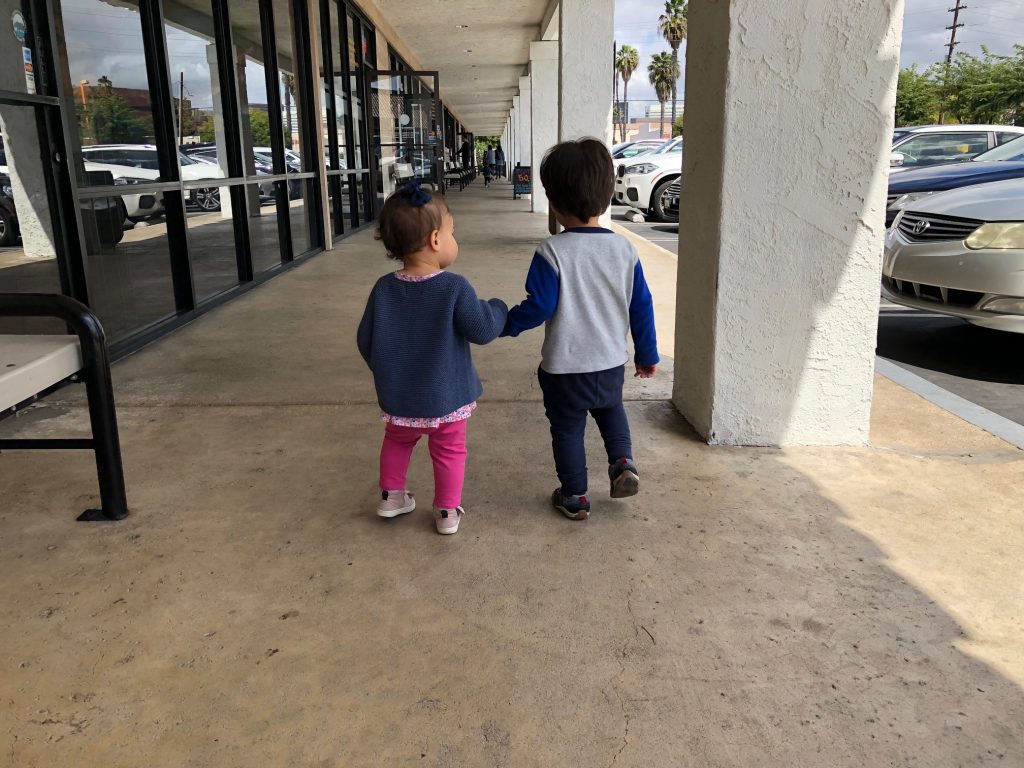Why Do We Argue So Damn Much!? – It Didn’t Start That Way
As we all know, couples argue a lot. Often about money, in-laws, and household chores. But that only
tells us what we argue about, not why. Certainly partners take different positions on those issues and have
different objectives, but even that doesn’t explain why they argue, rather than discuss and negotiate.
Clearly something very important is at stake in these issues. But is it really the money, the relatives, or the
division of labor?
To understand what’s actually happening, we must go deeper than “that’s just the way it is” and make
some distinctions. What happens that turns a discussion into an argument? Let’s look at the mechanisms
that can trigger the transition.

First, let’s be clear, not every disagreement becomes a argument. An argument is a disagreement that
involves intense negative emotions and cause feelings such as hurt, anger, rage, and the desire to “get
even” with our partner. “Which Beatle was the cutest?”, rarely if ever arouses such feelings, until the
disagreement develops into a personal attack, (“How could you be stupid enough to think ‘Ringo was the
cutest?’”) Such judgmental statements can cause injury to one’s sense of self. (I’m using “sense of self”
here rather than the more common term “ego” because ego suggests a person with a grandiose,
exaggerated sense of importance, abilities, attractiveness, and so on. “Sense of self” is a more neutral term
and doesn’t imply egotism.) And that elicits a self-defense reaction.
Self-Defense.
The first step to an argument occurs when we feel our sense of self is in danger, to which we respond by
becoming defensive. You might be surprised to hear that our efforts to protect ourselves and end fights
often produces just the opposite effect. While we feel we’re “only correcting the record”, the person we’re
“setting right” may feel rebuked, scolded, and labeled as personally, not just factually, wrong, and that
makes them feel attacked. They definitely don’t feel heard by us, so they defend themselves, which we
experience as a counter-attack . . . and then we have a battle on our hands.
The commonly suggested way to avoid such fights, “don’t defend yourself, listen carefully to their
concerns” is very difficult to carry out because self-defense is innate, natural, reflexive reaction. This puts
us in a bind. We may avoid arguments by resisting self-defense and listening to our partner, but then we
suffer the slings and arrows of our partner’s attacks. And if we do defend ourselves, it’s likely to make
things worse.
A third way to reduce the need for defense is by developing a more secure sense of self. And, at the risk
of overpromising, partners with more secure selves will have a better relationship and happier lives. And
partners with better relationships will have more secure selves and happier lives. So, how do we do that?

What Exactly Is a “Sense of Self”?
Each one of us has a “self”, basically ideas about who we are as distinct, unique individuals. It’s who we
are and how we’re different from, and are the same as, “others”. It’s a collection of ideas, a kind of
summary of our history, traits, strengths, and weaknesses; a kind of personal brand that defines how we
see ourselves and how we believe others see us. It’s not just our personally held image of ourselves, it
also includes how others see us. It can be thought of as a “coordinate”, a spot where we are “located” on
the social map; “I’m important” or “I’m nobody”. The deeper we understand this essential element of our
lives, the stronger that sense of self can become.
A positive, favorable sense of self gives us comfort and security. We feel we belong, that we have value
and importance to others. They need us just as we need them. A negative self leaves us anxious and
insecure, feeling unliked, unwanted, shunned, rejected. The good opinion of others is crucial to our
opinion of ourselves, so we desperately defend our image to ourselves and others. Feeling good about
who we are and how we are seen by others is that important.

The “Parts” of Our Self
The self can be subdivided into key parts. A few of the number of conditions that are essential to feeling
good about ourselves are:
• worth (value to ourselves and others)
• competence
• integrity
• acceptability, (OKness)
• autonomy
We NEED to check off all those boxes more or less positively to have a secure sense of self. We must feel
that we have value/worth, or why bother to get up in the morning. Life, as we well know, demands certain
skills to at least survive, if not thrive. Such effective living requires COMPETENCE, a capacity to
manage our lives and relations well.
For example, the statement, “How could you be stupid enough to think…?” demeans and diminishes our
intellect, and, therefore, our ABILITY. If we’re so dumb as to select the wrong Beatle, then the
implication is that something is wrong with us; our opinion and who we are doesn’t have much VALUE
in the eyes of our challenger. That can make us feel that maybe we don’t even have the INTEGRITY to
see the “correct answer”, nor are we deserving of the AUTONOMY to think for ourselves.

When we know these things about our sense of self, then we can understand why that when that sense is
threatened or attacked, we become defensive (which means we counterattack.) And, if we don’t defend
ourselves against the attacker, we attack ourselves for being “weak”, for “letting them get away with
treating me that way.” We can’t win.
Finally, for now, when others criticize us they tend to extend our shortcomings; they extrapolate our
mistakes from a few examples to the entirety of ourselves. And we do the same to them, when we become
defensive. We resist admitting an obvious problem or shortcoming in ourselves because we feel it
indicates the entirety of who we are. We spill some milk and are accused of BEING ENTIRELY clumsy
and stupid. We defend against that same spill because we are afraid that it indicates something negative
about the entirety of who we are.
You’re certainly seeing how each of these areas are points of vulnerability and can be triggers for
defensiveness and fights, and how a negative judgements about those parts of ourselves creates pain and
anxiety.

Masters and Disasters
As I have mentioned in previous articles, marriage guru John Gottman identifies two types of bonds: the
“Marriage Masters” and the “Marriage Disasters”:
The “Disasters” are at Defcon 1, on the verge of nuclear war, feeling their sense of self is critically
endangered. This climate creates a climate filled with contempt, criticism, stress, defensiveness . . . and
big battles.
The “Masters” are calm, at ease around each other. They focus on each other’s strengths, avoid
pinpointing weaknesses and shortcomings, abstain from attacks, and are very considerate of each others’
feelings; there is ample safety and little need for defensiveness. The “Masters” feel their sense of self is
safe in each other’s hands. This improves both their relationship with each other and with themselves.
It’s easy to see which approach (safety or danger – security or menace) is the best for the evolution and
growth of the relationship and the partners.
Our goal should be to conduct our relationships as Masters. Living in the safety of a Masters’
relationship, we can admit our shortcomings because we know they refer only to a part of who we are, not
to our totality. We become not only more at ease around our partner, but also with ourselves.
It’s hard to be happy with our life while unhappy with ourselves, but much easier when someone is happy
with us . . . and we with them. The key to such happiness-with ourselves and with our partner-is how we

TREAT each other.
Did I over promise?
Tony Johnson is a retired university mental health center psychologist who has been married for 45
years…because he did make these changes. He can be contacted for consultations at:
johnson.tony4536@gmail.com
Are you into beautiful Costa Rica?
All interesting things you want to know about Costa Rica are right here in our newsletter! Enter your email and press "subscribe" button.


